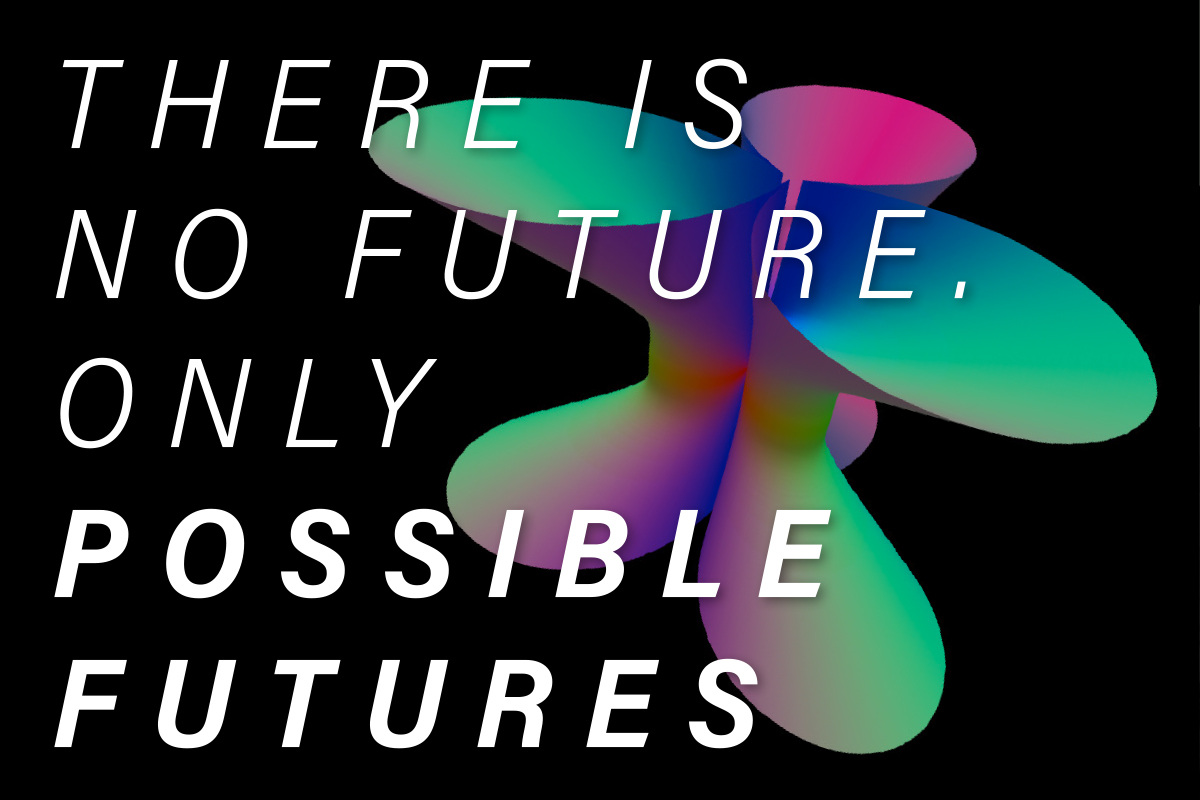
Reflection
For this term's Atlas of Weak Signal we carried out four lectures given by José Luis de Vicente. José Luis is a cultural researcher and curator working in the space between the arts, technology, and innovation. Together, we embarked on a journey constructing future scenarios by recognising weak signals that set trends and point in certain directions, based on an examination of the major change elements that we can see now. Throughout our four lectures, we touched upon the climate crisis as a background for all other crises, the rising preoccupation surrounding digital dystopias, the nature of work and its future lifepaths, and the concept of a nation-state and borders.
These are topics that I had pondered a lot in the last few years. I think most people of our generation, even the most optimistic ones, have thought to some degree about the prospect of societal collapse. We have all grown up with doomsday predictions slated to hit before our expected retirement ages, with the slow but inexorable militarisation of police departments into hi-tech hyper vigilant watchful eye, with the failure of the existing political order to deal with the existential-but-not-yet-urgent threat of climate change, and with the unquenchable greed of corporations and individuals that would rather burn the Amazon to the ground and sell our data to the highest bidder than maintain a crumb of integrity. Many of us feel it’s unethical to bring children into a world like ours.
While one can say that all of these things are terrible, and they objectively are, it is also a very one-sided view of the issues at hand. Through societal and technological developments, humanity has lifted more people out of poverty in the last decades than ever before. We are living through the most peaceful times in human history, with child mortality at an all-time low, people with all types of ailments being able to live full, normal lives, scientific discoveries that have provided answers about our universe and our history that we would've previously thought were impossible. As a species we've achieved so much and despite all of the problems previously stated, I don't think many people would opt to live in the middle ages rather than in 2022.
This advancement in society clearly didn't come unscathed. As of the past few years many individuals, particularly those from more affluent neighborhoods who had previously been insulated, have faced more immediate and terrible repercussions of climate change, social inequality, and corporate greed on their own lives as a result of recent events. For many individuals, this might be a source of despair: what can one person do to preserve a planet that is practically on fire?
When people get a full glimpse of how bad it is, they feel powerless. This was a common theme in our class, particularly with the younger crowd. I could see on their faces how the facts presented in José Luis' lectures fell on them like a ton of bricks. Who can blame them? They were brought into this world and at a young age they're expected to save it from impending doom. This also lines up with the devastating pandemic we're currently living through, a global issue that escapes all of our control.
So what can we do? We've been told throughout the years that the responsibility for our environment relies on us as individuals: recycle, don't take long flights, shower less, turn off the lights, and a long list that could go on and on. One then sees that 100 companies are responsible for 70% of carbon emissions since 1988 and that those campaigns for lowering one's carbon footprint has been funded by oil companies that are amongst the most polluting companies in the world. What's the point then?! We're pitted against each other in a race to the bottom of who's morally superior for their individual choices in sustainable practices.
This initial step of despair is essential towards moving away from Nihilism and into a state of action. Giving up on climate change is not an option and cynicism only works to maintain the status quo. We have to fight the prospect of dystopia and use that as fuel for collective efforts. The single greatest remedy towards feelings of individualistic nihilism is to band together in a communal endeavour. Only through collective action can we as a group of individuals force change through direct government action and market shifts that affect the outsized role of big companies and government in the climate crisis.
These changes also do not happen overnight, societal change is a long-term process and whether what is causing despair is climate change, the nature of work, nations at war or techno-dystopia, the key is to reach out to the community and use that grief as a source of power and fuel for change.